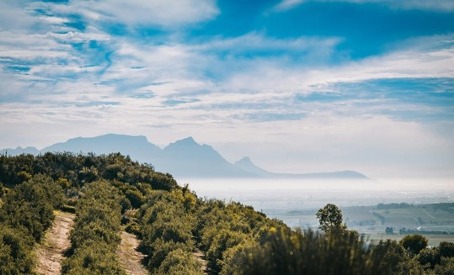Discourses of Sustainability Transitions
Please note that this school takes place in January, which is the summer period in South Africa.

What can we learn from the way public figures, ranging from politicians and activists to journalists and academics, talk about climate change, social and environmental justice?
How does their choice of rhetoric, language, and presentation reveal to us the underlying assumptions and values shaping their beliefs about “what is wrong”, “what needs to change” and “how to act appropriately” in the present moment?
Most importantly, why does paying attention to discourse and words matter so much in the struggle to save the planet? What does language have to do with material change?
Over the course of this winter/summer school, participants will study the relationship between discourse, worldview, ontology and ethics, particularly in regard to questions of just sustainability transitions (in particular just water / food / energy nexus transitions). How are arguments for more sustainable ways to live on this planet being mediated to audiences? Who is doing the mediating, and how does the message change, depending on the speaker and audience?
The goal of this week is to learn the impact that discourse has on material culture and then put this into practice by working with societal stakeholders to develop powerful communicative platforms using rhetoric that is both effective and aligns with their underlying values. For example, how can an organic farmer, committed to decolonial ecological values, win agricultural grants from the government without resorting to capitalistic rhetoric?
We will also introduce the practice of agile design thinking, which participants will use with their community partners as they conceptualise and execute their projects.
Practical information
|
Dates
|
19 - 24 January 2025 (Monday - Friday, with optional Sunday immersive excursion to Cape of Good Hope) |
|
Location
|
Stellenbosch University, Stellenbosch, South Africa |
|
Level
|
MA, PhD, Postdoc, Practitioners |
|
Fees
|
EU/International Fee: € 595 For local students not needing accommodation: ZAR2,497
These fees include course registration, accommodation, airport pick-up, welcome dinner, coffee & tea breaks, lunches, Cape Point entrance fee, use of Stellenbosch University facilities, and a finale dinner. |
|
Academic coordinators
|
Rachel Lara van der Merwe (Faculty of Arts, University of Groningen) John van Breda and Rika Preisler (Centre for Sustainability Transitions, Stellenbosch University) [co-sponsor]
Mehita Iqani (South African Research Chair in Science Communication, Stellenbosch University) |
|
Contact |
DiscoursesofSustainabilitySchool rug.nl |
Requirements
This course is designed for emerging researchers interested in environmental sustainability and justice, and who are interested in bridging theoretical knowledge with praxis. This course might particularly appeal to emerging scholars who wish to develop their skills in pursuing collaborative research with communities or to researchers intending to use their training outside of academia, e.g. in NGOs, think tanks, or government agencies.
Level: Primarily PhD students but MA/MPhil students & post-docs also welcome.
All disciplines are welcome but experience is required in reading advanced theoretical material from the humanities and social sciences in English.
It is expected that the participants have a sufficient command of the English language to actively participate in the discussions and to present their own work in English.
Course schedule
Discussion Seminar #1:
Theme: The Materiality of Discourse
- relationship between discourse and material practices of sustainability
- is it possible to deconstruct and reconstruct dominant capitalist modes of thought and practice?
Workshop: Agile Design Thinking
What is Agile Design Thinking & how can it be used for collective problem solving?
Discussion Seminar #2:
Theme: Discourses of Water
- how human relationship with water has evolved discursively
- intro to water in the Cape
Discussion Seminar #3:
Theme: Discourses of Agri-culture
- how human relationship with food and land has evolved discursively
- intro to farming in the Cape
2 field-trips in the Cape (one water-themed, one agriculture-themed)
1 optional “hiking seminar” through local flora and fauna.
4 charette-style sessions to develop project with community partner
Group Presentations
Learning outcomes
After this course you will be able to:
-
Identify and recognize the relationship between worldviews and discourse in discussions around sustainability, and be able to articulate the material impact on society that result from these discursive practices.
-
Design transformative transdisciplinary research processes for knowledge co-creation;
-
Collaborate with researchers and practitioners from different disciplines and from outside academia in order to develop sustainability projects.
-
Practice agile design thinking and co-construct thick and deep mapping as agile methods during transformative transdisciplinary research processes.
Workload
Preparation: 8-12 hours of reading
Discussions/Charettes/Field Trips: 35 hours
(includes final group presentations, 4 hours)
If credited, revised proposal: 5-10 hours
Upon successful completion of the programme, the Summer School offers a Certificate of Attendance that mentions the workload of 56 hours (28 hours corresponds to 1 ECTS). Students can apply for recognition of these credits to the relevant authorities in their home institutions, therefore the final decision on awarding credits is at the discretion of their home institutions. We will be happy to provide any necessary information that might be requested in addition to the certificate of attendance.
Application procedure
To apply, kindly fill out the online application form. Please note that you will be asked to upload the following documents:
-
Curriculum Vitae (max. 2 pages)
-
Motivation letter, clearly stating why you want to join this summer school, what you will bring to the school and what you hope to learn (max. 1 page)
-
Proof of student enrollment at accredited higher education institute
The deadline for application is 15 November 2024. Selection will take place on a rolling basis.

